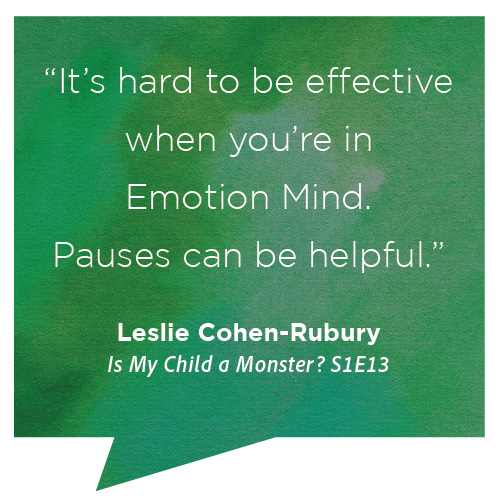Punctuate Your Life Newsletter
Hello family, friends, colleagues, parents, and clients,
In the fifth and final episode with Kathryn in Is My Child A Monster?, I suggest that pauses can be very helpful when conversations escalate. Pauses have the power to bring us back to our center or to our wise mind so that you can actually continue with the conversation. This is such a simple truth and like many simple truths, it is not so simple to make it happen. And although it does not come easy for me, I can honestly say that with lots and lots of practice I take the pauses. I appreciate the pauses. And my life and relationships benefit from the pauses.
I am not alone when it comes to needing to learn to pause. In my therapy practice, I developed the notion of punctuating your life. I was teaching a mindfulness exercise in my DBT Skills group and I decided to have the group members read a paragraph from a book without punctuation. Then I had them read the paragraph with punctuation. Punctuation makes our written word make sense. And punctuation in your life makes sense as well.

Life is like a run on paragraph…without punctuation, it just wouldn’t make sense. With punctuation it changes everything. The content of your life may still be challenging and painful at times, but with punctuation you can make sense of your life and find ways to navigate it.
Try putting in periods, commas, exclamation marks and question marks:
Periods - mindful rest. You can be the busiest person on the planet and not be burned out. HOW? With a practice of mindfulness you can feel grounded. You can appreciate the little things in life (the smile of a person that you pass on your busy day or the first spring flower budding out of the earth). Mindful rest is an act of self-care, especially for those that believe productivity is overly valued at the cost of mental health well-being.
Commas - take a breath. Step back from a situation and give yourself a moment to breathe. Taking a breath when you feel tense or upset can help you then move forward with calm and perspective. Practice this throughout your day even when you are not stressed.
Exclamation marks - moments of joy. Saying yes to something new, getting excited about someone else's well being and achievements, reading good news and not just the bad news. Taking time to celebrate the wonderful and beautiful moments will go a long way.
Question marks - be curious. Keep asking yourself, “What am I missing from this situation?” When someone or something upsets you, be curious. Yes, I am upset with that person's reaction, and also I wonder what I don’t know about their situation. Being curious keeps you open minded. The question marks give us a child-like perspective or “beginner’s mind.” They allow us to look for missing information, which can help us get unstuck from a righteous stance. When we think we are right, it can sometimes lead to more conflict and frustration. Ask questions and be curious. We don’t have all the answers or know everything. Staying curious opens you up to more learning and growth. Question marks can also be about learning new information, exploring spirituality and meaning-making, however you define it.
And before I sign off…I want to let you know that we’re looking for guests for season two of Is My Child A Monster?. We’d love to hear from all kinds of families with kids between ages 4 and 18. There’s no problem too big or too small. If you’d like to volunteer for some free parenting therapy and are comfortable sharing your sessions publicly – with all names changed, of course – please visit ismychildamonster.com and fill out an application to come on the show.
Punctuate your life in meaningful ways!
Please share the ways that you punctuate your life.
You can share by sending me an email at leslie@cohenrubury.com or better yet visit Is My Child A Monster? Facebook Parenting Community and share it there.
– Leslie



